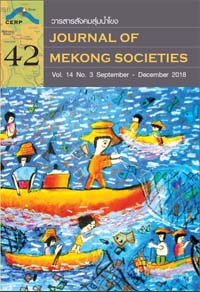Protection of Female Employees’ Motherhood Rights in Japan: Implications for Thai Law
Main Article Content
Abstract
The objective of this article was to study female employees’ maternity rights in Japan both during and after pregnancy. Employing comparative law approach, the study analyzed and compared differences and similarities in practices as administered by the International Labor Organization and related Thai laws. The emphasis was on maternity rights as observed within the private business community. Results from the study showed that the law in Japan stipulates clearly the number of days that female employees would get their maternity leave during and after their pregnancy, which is in line with the International Labor Organization Convention. In addition to days off as allowed in Japanese law, extra days off are also given to the mothers who had twins so that they could have more time to provide proper care to their children and nurture them with breastfeeding. In Japan, the right to such a leave is given to both fathers and mothers. However, the laws in Japan and those in Thailand do not give pregnant women the right to take a leave when sick or having chronic disease as stipulated in the International Labor Organization Convention. Consequently, this resulted in lack of financial benefits to pregnant women both in Japan and Thailand especially while these women were sick. In addition, the study found that the laws in both Japan and Thailand prohibited pregnant women from carrying out duties that would potentially have adverse effects on the pregnancy.

